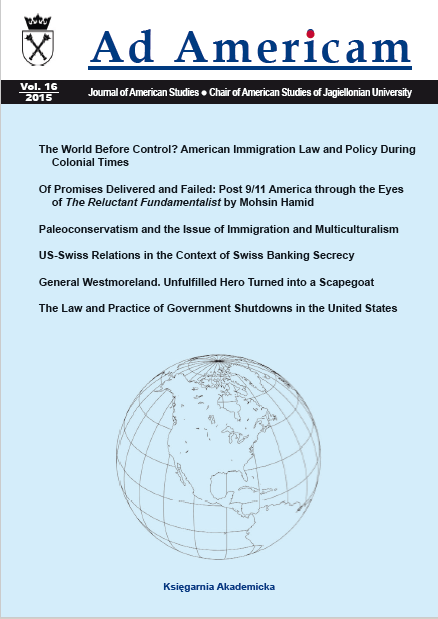U.S.‑Swiss Relations in the Context of Swiss Banking Secrecy
U.S.‑Swiss Relations in the Context of Swiss Banking Secrecy
Author(s): Anna PruskaSubject(s): Politics / Political Sciences, Economy, International relations/trade, Financial Markets
Published by: KSIĘGARNIA AKADEMICKA Sp. z o.o.
Keywords: United States; Switzerland; Swiss Banking Secrecy
Summary/Abstract: Until World War I, bilateral relations between the United States and Switzerland could be described as rather friendly. Often referred to as ‘sister republics,’ the two countries shared common democratic values and a sense of uniqueness with respect to their republican governments in a world dominated by autocracy. The first serious rupture between the two countries occurred during and in the immediate aftermath of World War II. The major cause of this rupture was the refusal of Switzerland to participate in the Safehaven program, designed to track down and block German assets in neutral countries and later to use them for post‑war reparations. The repercussions of the involvement of Switzerland in the transfer of Nazi gold as well as the safekeeping of German assets had profound consequences for U.S.‑Swiss relations in the 1990s, fueling a conflict over the dormant accounts of holocaust victims. All major disagreements between the United States and Switzerland are connected to the concept of Swiss banking secrecy, which is defined in a most rigorous way compared to international legal standards. The implementation of Swiss banking secrecy as defined in Swiss Banking Law facilitates tax misconduct by foreign nationals. Since 2007, the bilateral relations between Switzerland and the U.S. have been determined by ongoing IRS investigations into the involvement of Swiss banks in aiding U.S. citizens in tax evasion and tax fraud, which is facilitated by the enforcement of stringent bank secrecy laws within the Swiss banking system. The U.S. legal actions against Swiss banks proved that the American government is determined to enforce its laws in Switzerland despite it being a sovereign foreign country. The conflicts with the U.S. over banking secrecy, which, among other findings, unveiled the conduct of the Swiss during World War II, have shed light on the true nature of this phenomenon. Switzerland is struggling to defend the values so fundamental to its banking culture, but at the same time it is forced to succumb to international and especially U.S. pressure and implement various internal and international regulations, which impose a constraint on the practice of banking secrecy.
Journal: Ad Americam. Journal of American Studies
- Issue Year: 2015
- Issue No: 16
- Page Range: 41-58
- Page Count: 18
- Language: English

